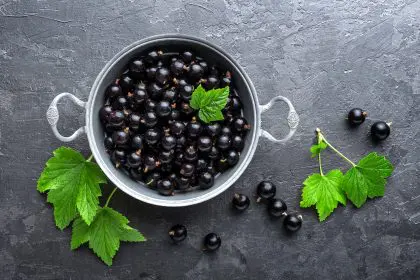Recent studies have revealed alarming connections between ultra-processed foods and serious health conditions. These convenient but potentially harmful foods have become a staple in modern diets, making up nearly 60% of the average American’s daily caloric intake. Understanding their impact on your health has never been more crucial.
Defining ultra-processed foods
These foods go far beyond simple preservation methods. Ultra-processed foods contain ingredients you won’t find in your home kitchen, including various preservatives, artificial colors, flavors, and textures designed to make them more appealing and longer-lasting. Think of your favorite packaged snacks, ready-to-eat meals, and even some seemingly healthy options like certain breakfast cereals.
What science tells us now
A groundbreaking September 2024 study involving over 200,000 American adults revealed startling connections between specific ultra-processed foods and cardiovascular health. The research identified particular ingredients and processing methods that pose the greatest risks, changing how we view many common food items.
The real cost of convenience
While these foods offer undeniable convenience, their impact on health can be significant. Research links regular consumption to increased risks of obesity, type 2 diabetes, and heart disease. The convenience they offer comes with a hidden price tag that affects long-term health and wellness.
Processed meats under scrutiny
The International Agency for Research on Cancer has classified processed meats as carcinogenic, placing them in the same category as other known health hazards. This classification comes after extensive research showing strong links between processed meat consumption and various health issues, particularly colorectal cancer.
The sugar-sweetened beverage problem
Regular consumption of sugary drinks has been linked to a cascade of health issues. Beyond the obvious connection to dental problems, these beverages can significantly impact metabolic health, contributing to insulin resistance and increasing the risk of type 2 diabetes.
The truth about fried foods
Commercial frying methods often create compounds that can be harmful when consumed regularly. These foods typically contain high levels of unhealthy fats and excessive sodium, contributing to various health problems, including heart disease and obesity.
Making smarter choices
Transitioning away from ultra-processed foods doesn’t mean sacrificing taste or convenience. Simple swaps can make a significant difference in your diet’s nutritional profile while still satisfying cravings for familiar flavors.
Protein alternatives that satisfy
Instead of processed meats, consider incorporating more fresh poultry, fish, and plant-based proteins into your diet. These alternatives provide essential nutrients without the added preservatives and sodium found in processed options.
Rethinking your drink
Water doesn’t have to be boring. Natural flavor enhancers like citrus fruits, berries, or herbs can transform plain water into a refreshing beverage without added sugars or artificial sweeteners.
Reimagining favorite foods
Many traditionally fried foods can be recreated using healthier cooking methods. Air fryers and ovens can produce crispy, satisfying results without excessive oil or harmful compounds.
The role of whole foods
Emphasizing whole, minimally processed foods in your diet provides essential nutrients in their natural form. These foods typically contain fiber, vitamins, and minerals that support overall health and well-being.
Planning for success
Meal planning and preparation can make healthy eating more manageable. Setting aside time to prepare nutritious meals helps avoid the temptation of convenient but ultra-processed options.
Understanding food labels
Learning to read and understand nutrition labels empowers you to make informed choices about the foods you consume. Pay special attention to ingredient lists, watching for added sugars, sodium, and unfamiliar chemical names.
The future of food choices
As research continues to unveil the impacts of ultra-processed foods, the food industry is responding with healthier alternatives. However, the best approach remains focusing on whole, minimally processed foods whenever possible.
Making the switch to less processed foods requires awareness, planning, and commitment. However, the benefits to your health make these efforts worthwhile. By understanding the risks associated with ultra-processed foods and implementing practical alternatives, you can take control of your diet and work toward better health outcomes for you and your family.














